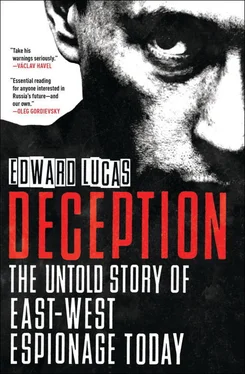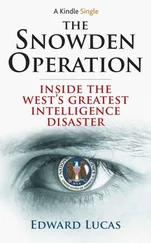Heathfield’s efforts were not just in America. His intern recalls, ‘He was always travelling – I had no idea how he was funded – back and forth between Singapore, Boston and Canada.’ His website also suggests partners in China, including with the Chinese Academy of Social Sciences, an influential government think tank, with the Beijing Academy of Soft Technologies 23and an outfit called Chinagreenfuture. 24Emails to these organisations asking for details of Heathfield’s involvement in their activities went unanswered but the connection was strong: his elder son interned in China in 2008.
Clearly part of Mr Heathfield’s image was simple invention. He cites in the ‘resources’ section of his myfuturemap.com website a reputable firm of business coaches called Coachinc.com. Asked to confirm Mr Heathfield’s claimed connection, the CEO, Sandy Vilas, replied immediately: ‘Never heard of him.’ 25But chasing down other leads presents a more complex picture. In a lengthy presentation about Futuremap’s virtues at an event in Singapore sponsored by the local French Chamber of Commerce, Heathfield’s local partner Fabrizio Battaglia used a slide giving the logo of nine well-known international companies, including ABB, Alstom, AT&T and T-Mobile. 26Heathfield’s own website says that he has worked with big companies such as ‘General Electric, AREVA, Boston Scientific, Ericsson, Motorola, Microsoft, Michelin, Philips, STMicroelectronics, SAP, T-Mobile, and United Technologies.’ 27
Most of these companies replied that they could not trace any connection with Mr Heathfield. (Mr Battaglia did not respond to repeated requests for comment.) Among the exceptions was ST Microelectronics, which confirmed that its ‘internal educational organisation’, ST University, ‘occasionally collaborated’ with Global Partners (a reputable Boston-based firm where Heathfield used to work) for sales and marketing courses involving him as an ‘external consultant’. It insists that it never bought his software or hired him directly, ‘nor was the relationship… of any significance in duration or value’. 28The France-based international utilities firm Veolia was the only firm to acknowledge a serious connection. It hired Heathfield to design strategy and speak at management training events. Benoit Bardon, who worked with him closely for six years, recalls a ‘smart guy’ with ‘brilliant methodology’ who showed no interest in intelligence-related matters. Gerard Bridi, an American-based consultant who worked closely with Heathfield (and endorsed him on his LinkedIn profile) says that he typically charged his clients $3,000 a day.
A bit of puffery is not unusual in the self-promoting world of consultancy. It is also understandable that huge companies, with operations in dozens of countries, find it hard to say whether a particular consultant has or has not been hired at any point over the past fifteen years. But two points stand out. One is how easy it is for a plausible and well-educated person to disguise phoney origins and appear to be a genuine expert. The other is how much damage can be done by allowing such a person access to the inner workings of companies that are involved in defence contracting, energy security, communications and the like. The most likely modus operandi for someone like Heathfield is to recruit sources as unwitting collaborators with Russian intelligence. His consultancy job allowed him to ask well-placed sources to write occasional background reports for anonymous consulting ‘clients’, in exchange for a lucrative fee or well-padded per diem payments. He needed to make no mention that the result was going to a foreign government, let alone to Russia.
It may help the reader to picture three possible examples of such an approach. Imagine yourself to be an influential American – perhaps a senior partner in a professional-services firm with a client list that includes government agencies and big companies. How suspicious would you be of an intelligent and attractive woman assigned to help with your taxes, who shows a flattering interest in your political connections? Or of a brainy, jargon-spouting consultant wanting to future-proof your business? Or of a plausible-seeming fellow-alumnus who networks assiduously at events that you attend? Most likely, they are all just what they seem. But any of those three could be an illegal, working for Russia, China or some other country, trying to make you a witting or unwitting ally in their attempt to steal secrets and exert influence.
For specific targets of direct national-security importance, someone claiming to be an American citizen (or British, or from another NATO member) may find it marginally easier to gain trust speedily. But in other respects Heathfield’s elaborately acquired illegal identity – a Canadian citizen with a stellar professional career – was unnecessary, and even a hindrance. One of the appealing aspects of Western society is that employers and business associates tend to take the people they deal with on trust. If someone is charming, brainy and effective, those characteristics will matter far more than whether they hail from Tomsk or Toronto. Had Heathfield started his mission twenty years later, his bosses could have sent him to Canada quite legally on a student visa. From there he would have gone to the Kennedy School, and finally moved into consulting, without breaking any law or needing any clandestine connection, other than perhaps a wealthy ‘relative’ in Russia to pay the bills. He could even have changed his name, as many immigrants to North America do, from the hard-to-pronounce Bezrukov to something easier: Heathfield, perhaps. Much if not all of his assiduous networking and self-promotion would have followed an all but identical path. He might still be living in Cambridge, Massachusetts today, rather than working in Russia as a consultant to an oil company. Indeed in some respects his cover story may even have been positively harmful. Some of his former associates say that they would have been more forthcoming had they known he worked for the Russian government: they found his relentless commercialism rather off-putting. Professor Bar-Yam, for example, who had previously found Heathfield’s software commendable if flawed, says his reaction to the spy scandal was ‘very neutral’:
So Russia was sending people to learn about local culture? You might see it as a cultural exchange. I am not sure that’s a bad thing. If there’s conflict between countries it is very important that there is an exchange of information to bring broader understanding. 29
An illegal identity also has the great weakness of all complex plots: just one loose end can unravel the whole deception. A former student of Tomsk University, now living in America, remembers the couple clearly from the early 1980s: ‘Lena’ (who later became Heathfield’s wife ‘Ann Foley’) was a ballet-loving young woman, who had studied at the city’s prestigious German-language high school and toured Japan with a Soviet tourist group. That was a striking privilege at a time when travel to capitalist countries was restricted to the best-connected, and was especially rare for those living in strategically important ‘closed cities’ such as Tomsk – these were places quarantined by the KGB, where visits by foreigners where banned, and whose inhabitants were generally prohibited from visiting countries in the ‘capitalist camp’.
Bezrukov transferred to a university in Moscow – an unusual move up the Soviet academic ladder that indicated powerful sponsorship. When the communist world was almost hermetically sealed from the capitalist one, it was highly unlikely that any tendril of an illegal’s old life would appear to trip up the new one. The chance of Tomsk alumni meeting in Cambridge, Massachusetts was about as likely as an encounter on the moon. Yet the erstwhile fellow-student 30could easily have bumped into Heathfield and his wife on the street. Denial would be risky, explanations even more so. It might force the controllers in Moscow to abort the whole mission, ending a decade or more of meticulous and costly work.
Читать дальше












